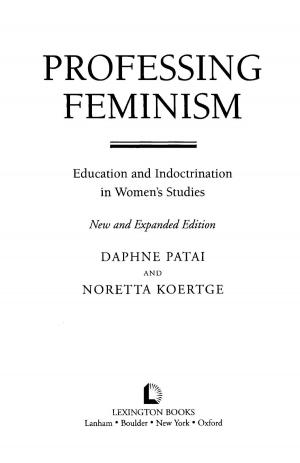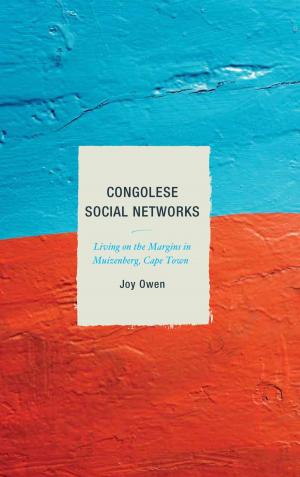Flak-Catchers
One Hundred Years of Riot Commission Politics in America
Nonfiction, Social & Cultural Studies, Political Science, Government, Local Government, Civics, Social Policy| Author: | Lindsey Lupo | ISBN: | 9780739138120 |
| Publisher: | Lexington Books | Publication: | December 2, 2010 |
| Imprint: | Lexington Books | Language: | English |
| Author: | Lindsey Lupo |
| ISBN: | 9780739138120 |
| Publisher: | Lexington Books |
| Publication: | December 2, 2010 |
| Imprint: | Lexington Books |
| Language: | English |
Flak-Catchers explores the ways in which riot commissions-the institutional bodies appointed by an executive in the aftermath of a race riot to determine a riot timeline, investigate causes, and offer prescriptions for change-have dealt with racial violence in the United States over the last century. In studying five riots and their commissions, Chicago 1919, Harlem 1935, Los Angeles 1965, USA 1967, and Los Angeles 1992, this book shows that riot commissions only serve to give the appearance of strong and responsive government action during uncertain times. They primarily benefit the instituting body by focusing on a restoration of law and order while undermining any larger civil rights message. However, this book also challenges the prevalent idea that riot commissions are all the same, by revealing how riot commissions have changed over the last century, shifting in their prominence, content, and focus. After the 1968 Kerner Commission, which studied the 1967 summer riots, it has become increasingly common for the riot commission to fail to answer fundamental questions posed by the crisis.
Flak-Catchers explores the ways in which riot commissions-the institutional bodies appointed by an executive in the aftermath of a race riot to determine a riot timeline, investigate causes, and offer prescriptions for change-have dealt with racial violence in the United States over the last century. In studying five riots and their commissions, Chicago 1919, Harlem 1935, Los Angeles 1965, USA 1967, and Los Angeles 1992, this book shows that riot commissions only serve to give the appearance of strong and responsive government action during uncertain times. They primarily benefit the instituting body by focusing on a restoration of law and order while undermining any larger civil rights message. However, this book also challenges the prevalent idea that riot commissions are all the same, by revealing how riot commissions have changed over the last century, shifting in their prominence, content, and focus. After the 1968 Kerner Commission, which studied the 1967 summer riots, it has become increasingly common for the riot commission to fail to answer fundamental questions posed by the crisis.















